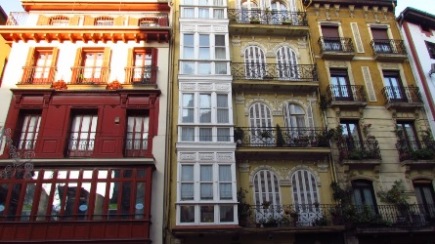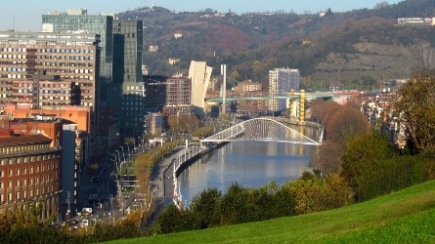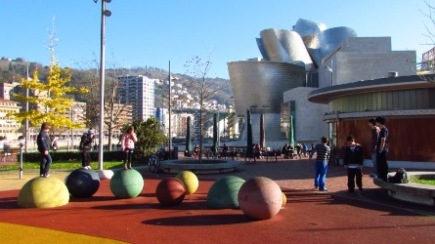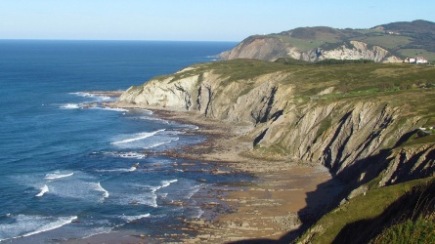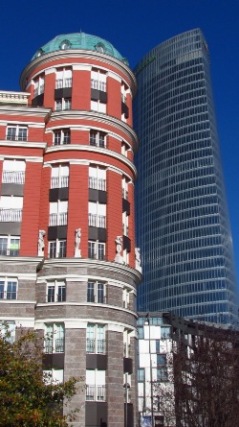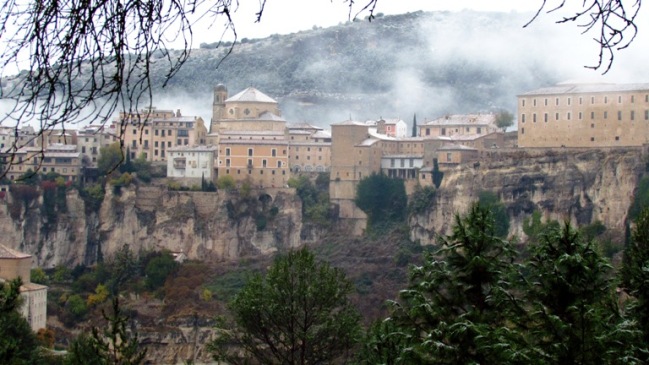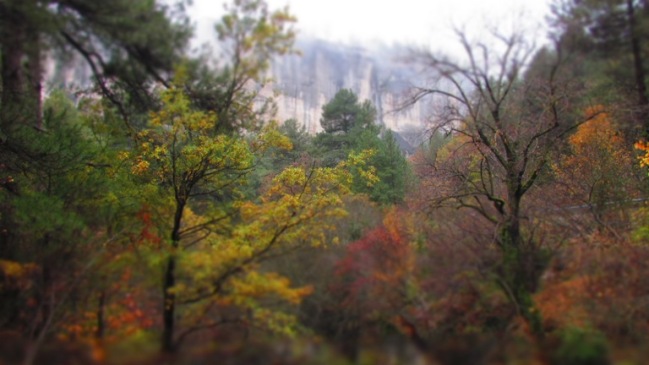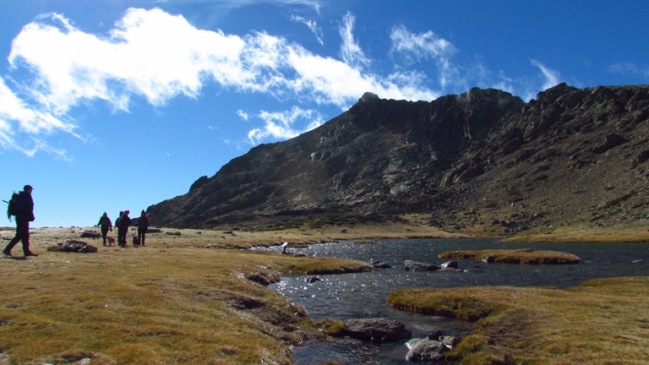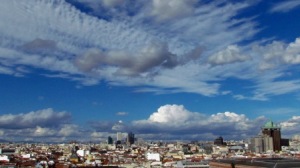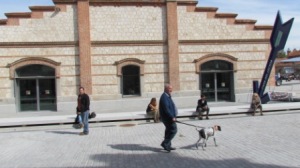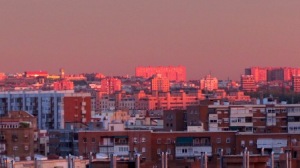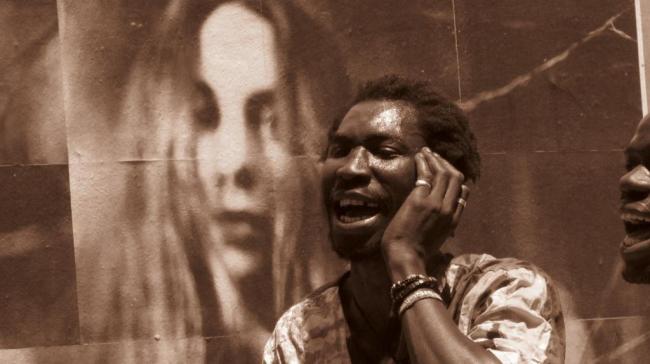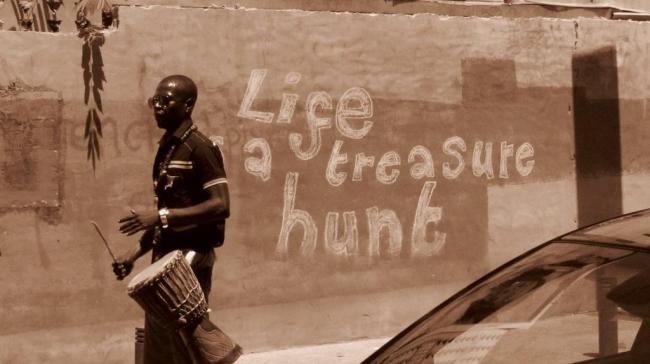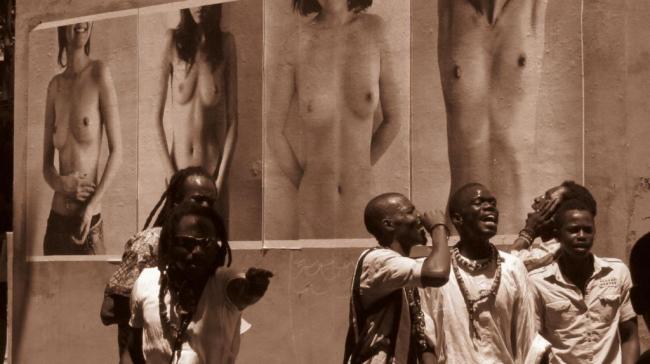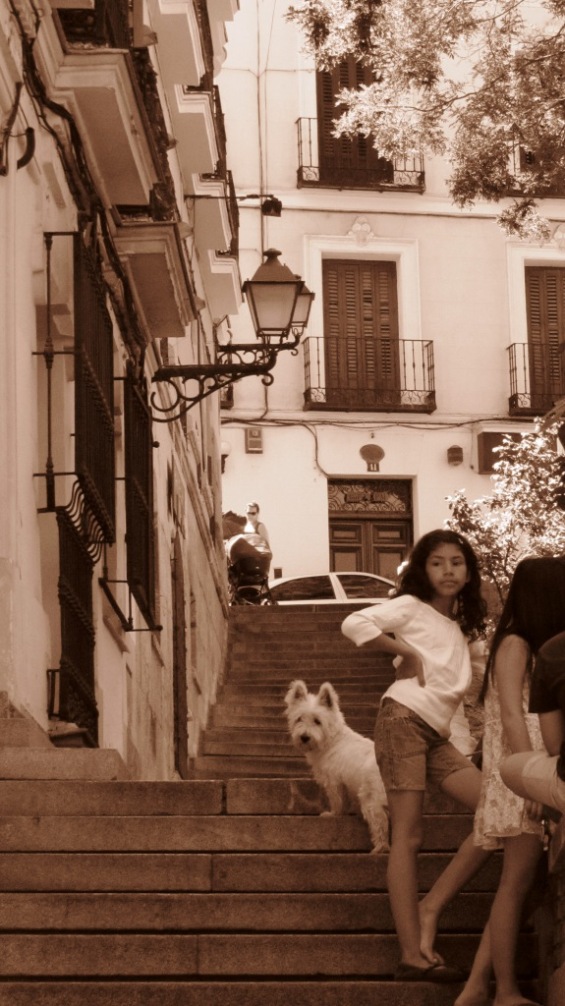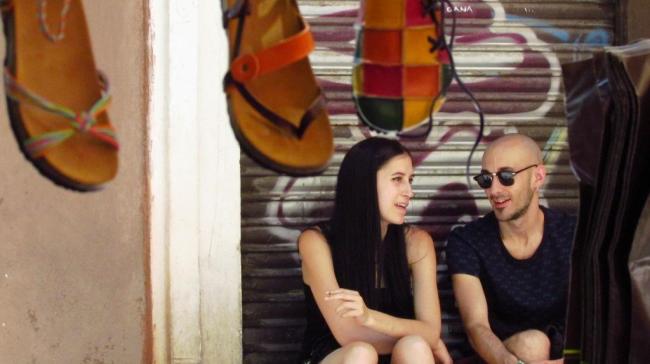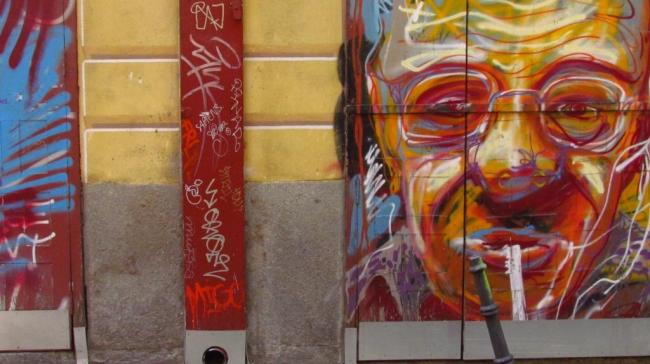A dog’s life
It’s been a week of ignoble spectacles in Spain, and all thanks to a woman called Teresa Romero, a little squiggle of a virus called Ebola, and a dog.
In the beginning, we didn’t even know Teresa’s name. She was a nursing assistant in her forties, and she’d made the papers for the sort of reason of nobody wants to see their name in print: she’d been unlucky enough to be diagnosed with Ebola, having contracted the world’s trendiest disease after treating one of the two Spanish missionaries who’d been repatriated to Spain from West Africa suffering the virus.
The news, while a shocking way to start the week, wasn’t a complete surprise. Ever since Spain had taken the controversial decision to fly the missionaries back home for treatment — surely it was safer to have them treated in Africa, many said, perhaps not considering how they might feel in the same situation — there had been talk of improvisation at the Madrid’s hospital where they were being treated. One nurse I interviewed provided a scary insight into a world of fifteen-minute training sessions and general incompetence. But for weeks during the summer the government continued to assure everyone the situation was under control and we had nothing to worry about.
Then we found out about Teresa, and everything changed.
When you discover someone has a disease like Ebola in the city where you are living, this is what you want: you want a statesman-like figure being completely transparent about how the infection could have occurred and providing clear information on the virus itself. You want to be able to feel confident that behind the scenes health officials and professionals are ticking all the right boxes. What you don’t want is typical Spanish high (or should that be ‘low’?) theatre. You definitely don’t want to see, for example, Madrid’s regional health boss smugly blaming the nurse herself for catching the disease in an effort to deflect attention from the authorities. (“It doesn’t take a Masters degree to put on a protective suit,” he said after the woman was reported to have said she may have touched her face with her gloves while removing her uniform.)
But the low point of the week for me involved a dog called Excalibur. While Teresa fought for her life in a Madrid hospital, with her husband and up to a dozen other health workers also isolated in the same institution, it emerged that health authorities planned to put down Teresa’s dog Excalibur.
Over two days, thousands of Spaniards, and people around the world, found the time to sign a petition, send out a tweet or write a message of support on Facebook for Teresa’s dog. Excalibur should be isolated and treated too, people said. There was no evidence Ebola could spread from dogs to humans, they argued. More and people posted pictures of their dogs next to signs telling the Spanish authorities not to kill Excalibur.
Now I admit I’m not a dog person ; I like dogs well enough, I like patting them and going walking with them, but I guess I don’t really want to share my life with one, especially in a city apartment. That said, I’m certainly not anti-dogs, and I didn’t want to see Excalibur put down. But the spectacle of all of these people banding together to save Excalibur as the human death toll crept up towards 4,000 in West Africa was frankly disturbing. I’d hate to think most of these people actually care more about Excalibur than about the thousands in Sierra Leone and Guinea, but sometimes you have to wonder.
Or perhaps I’m just heartless.
Other Spains: Bilbao
I’ve always had a bit of a thing for second tier cities — the sorts of unglamorous places you make a detour to if your holidays are a little longer than usual fortnight, or that you visit if you just happen to be in the area, but which otherwise drop off the list.
Perhaps I like these places so much because my own home town of Melbourne, Australia is such a perfect example. Melbourne always plays second fiddle to Sydney: it’s Australia without the good weather, without the opera house, and without the stunning ocean beaches. Everyone is dying to go to Sydney, but very few people have died wishing they’d visited its less pretty sister.
My home town befuddles tourists; they wander around and take photos of our ‘sights’ —a clock made of flowers! a lane with cool graffiti! — and puzzle over why the locals seem so damn cheerful all the time. “A great place to live, but I wouldn’t want to visit” is my standard line when people ask me about Melbourne. And the same could probably be said for all sort of overlooked places around the world, cities like Indianapolis or Nanning or pretty much any town in the Low Countries which isn’t Amsterdam.
Spain’s Bilbao is another proud member of this second city club. While this Basque city isn’t exactly a secret, especially since the Guggenheim Foundation decided to plonk a massive architectural flight of fantasy here, Bilbao is still some way down the Spanish tourism food chain. Poor Bilbao has to compete not just with limelight stealers Madrid and Barcelona but also with heavyweights like Salamanca and Seville and Santiago de Compostela.
No one in Bilbao seems particularly worried about their secondary status, though. Indeed, on a preternaturally bright weekend in early December, the city has its chest well and truly puffed out. The banks of the river brim with cheery dogwalkers and the usual mass of families with their glamorous mothers and heavyset but happy menfolk.
I know I am in the Basque Country here, and I am therefore in one of the other ‘Spains’. For there is no one single Spain, or even the “two Spains” (left versus right, for example, or monarchist versus republican) so beloved of Spaniards. Instead this country sometimes feels as stitched together and ill-fitting as any post-imperialist nation in Africa. Spain’s 1812 constitution even reflected this plurality by calling the country ‘Spains’ and it wasn’t until the 1876 constitution that the founding padres settled on the singular form.
But even in this country of contrasts, the Basques are notoriously different. To begin with, they live in a very un-Spanish and fairytale-like landscape of steep wooded slopes and misty valleys. Then there is their character. They are typically portrayed as dour and hardworking, traits you don’t associate with this country. Strangest of all, though, is the Basque language. Full of jagged ‘x’s and ‘k’s, it appears to be related to no other language at all. How exciting. On a Saturday afternoon in Bilbao though, I have to say my predominant feeling is one of being still very much in Spain. I am just an ignorant tourist of course, but the differences all feel cosmetic.
Arriving here from Madrid reminds me, say, of travelling from the German-speaking part of Switzerland into the French part. Crossing that border in Switzerland, suddenly you are hit by the fact that the signs are in a different language, or that the sausages are fatter (or thinner), and the people greet you with different words. But at the same time the architecture is still pretty much the same, people shop in the same supermarket chains and there is the identical Swiss politeness about the business of living.
In Bilbao, these superficial differences are: the occasional distinctive green, red and white Ikurriña, or Basque flag; old men in black berets, and the pincho-style tapas. There is the geography too. The city crawls discretely up a succession of greener than green hills, again making me feel like I am back in The North.
But I don’t feel I’ve left Spain. Rather, seeing Bilbao is expanding my idea of what this country is, and makes it seem even more amazing. Though of course my perception is distorted, because this is a holiday weekend and many of the people on the streets of Bilbao right now are tourists. Also, I really know very little about the city, and certainly not enough to know whether or not it is fundamentally different from the Spain I think I know. My Swiss comparison isn’t really fair either. Switzerland has had almost a millennium to work out how to live with its many contradictions, and there have been plenty of wars along the way, while modern Spain is a 40-year-old democracy with a very recent civil war to come to terms with. Franco did this country few favours, and in the case of the Basques, even less. By trying to oppress the language and the regional culture — as invented as much of this may be — he gave rise to ETA.
Bilbao seems to have stepped away from this history though. The city has experienced a renaissance of sorts in recent years, thanks to the arrival of the Guggenheim museum, yes, but also thanks to its mayor Iñaki Azkuna, who currently holds the title of the World’s Best Mayor. There are urban renewal projects everywhere. The place feels well cared for, and the people seem to have reached a happy comprise with nature. In short, I left Bilbao with a positive feeling about Spain, something which hasn’t happened a lot recently.
Another silly love song
A few years ago, the downtowns of even Spain’s most humble cities, towns and villages were about as close to urban nirvana as you can get. Wheelchair-friendly pavements gleamed and glistened under bright southern skies. Traffic lights winked comfortingly at the intersections of streets without traffic and municipals gardens were a dazzling display of magnolias and oleanders.
Polished park benches, pretty pergolas, and manicured roundabouts: you could barely move without tripping over an EU-sponsored fountain or footbridge.
Then Spain’s construction-driven gold rush ended. And the arrival of the crisis was like an earthquake with millions of tiny aftershocks; these are still rattling the country’s foundations five years later.
Spain’s town halls were no more immune to this seismic shifting than anyone else. More used to spending cash than saving it, they began hunting around for ways to cut corners. And one of the casualties was street cleaning.
But the problem with cutting your maintenance budget is that the results are hard to hide. Bins fill up and then overflow, spilling out trails of half-crushed beer cans and used lottery tickets. Litter is driven along by the wind and then collects in forgotten corners. Parks and gardens dry out and became parched as lonesome drunks.
This dirt is an outward manifestation of the crisis and particularly dispiriting, given Spain is a country where cleanliness is a point of both domestic and civic pride. Letting your streets fall into disrepair is as unthinkable as donning last season’s clothes because you can no longer afford to replace them.
Madrid has not been immune this general decline in upkeep. If you look beyond the lacy frills of the Plaza Mayor or the velvet swagger of the city’s swanky Salamanca neighbourhood, you’ll see the rents in the fabric: the buckled footpaths, a shabby plot of overgrown grass fronting a ramshackle palace, a pair of overfull recycling containers.
Indeed, if you believe the country’s biggest newspaper, Madrid has become dirty, unloved and unlovable. This is, apparently, a city without a story, without an image, and without that single Eifel-tower style monument that would make it a world-class city. To make matters worse, Madrid’s nightlife is moribund, the streets are filthy and there is a lack of a general direction or plan.
The newspaper’s attack – or perhaps wake-up call is the better way to put it? – didn’t come out of nowhere. Just weeks ago, Madrid lost its bid to host the 2020 Olympics. It was the Spanish capital’s third time of trying, and before the vote many people honestly seemed to believe that the world owed Spain something, that all the years of hardship would be rewarded with the spinning of the Karmic wheel. Winning the Olympics would be some kind of international redemption. It would mark a glorious new chapter for Spain.
Instead we were treated to the astonishing – and perhaps never to be seen again – sight of thousands of Spaniards reduced to complete silence as they learned Tokyo, not Madrid, would be the lucky hosts.
Perhaps this was a case of straws breaking camel’s backs. Maybe until that moment, the judgement on Madrid was still out. Now, though, it seems you can say whatever you like about the Spanish capital.
This Madrid bashing is all very unusual – for me at least, as it’s the first time I’ve come across it in Spain. This is not Australia where people tend to despise Sydney and Sydneysiders with joyful abandon. This is not England with its bitter resentment of the black hole that is London, or even Italy where the residents of every town in the land pretty much hate the residents of every other town in the land. By contrast, Spaniards seem, for the most part, to have a sort of grudging affection for this scruffy redbrick city on the plains.
This Madrid bashing is strange, too, because the more time I spend here the more I like this big-city -writ-small with its museums, and shady parks and grubby unpretentious bars. I love its tangle of neighbourhoods that live – happily it seems – without a plan or a direction.
I’m sure, too, that Madrid has seen better days and far worse days and will cycle through both again. But what I also know is Madrid will never again be this Madrid where I spent my first autumn and rejoiced at its constantly changing skies, or at the just-glimpsed view of the mountains on the city’s fringes, or simply enjoyed that delicious moment leaving home each morning in October when the air was a little too cool to be entirely comfortable but ‘cold’ was just a word.

